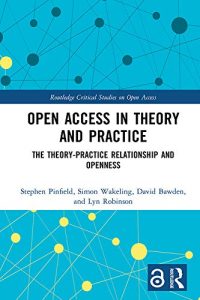
By Stephen Pinfield, Simon Wakeling, David Bawden, and Lyn Robinson.
Drawing on detailed analysis of the literature and current practice in OA, as well as data collected in detailed interviews with practitioners, policymakers and researchers, the book discusses what constitutes ‘theory’, and how the role of theory is perceived by both theorists and practitioners.
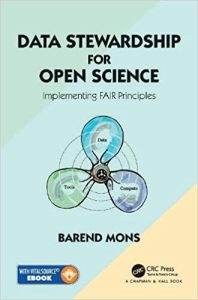
By Barend Mons.
This book is written initially from a life-science perspective, but most approaches discussed and linked are of importance for all disciplines. The basic structure follows the so-called data stewardship cycle, from study design to interpretation and long term archiving and availability of data.

By Benedetta Brevini.
Is AI Good for the Planet? brings the climate crisis to the centre of debates around AI, exposing its environmental costs and forcing us to reconsider our understanding of the technology. It reveals why we should no longer ignore the environmental problems generated by AI. Embracing a green agenda for AI that puts the climate crisis at centre stage is our urgent priority.
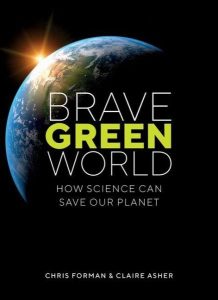
By Chris Forman & Claire Asher.
In ‘Brave Green World,’ Chris Forman and Claire Asher show what our linear systems can learn from the efficient circularity of ecosystems. They offer an unblinkered yet realistic and positive vision of a future in which we can combine biology and manufacturing to solve our central problems of waste and pollution.
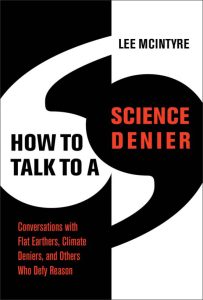
By Lee McIntyre.
In How to Talk to a Science Denier, Lee McIntyre tells the story of his own adventures in talking face to face with science deniers and their victims-including a Flat Earth convention in Denver, coal miners in rural Pennsylvania, and fishermen in the Maldives-and what he learned from the experience.
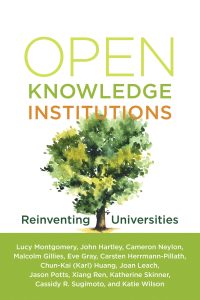
By Lucy Montgomery et al.
A short text that challenges universities to address new networked and digital knowledge platforms, networked practices of knowledge production and new systems of knowledge sharing and certification.
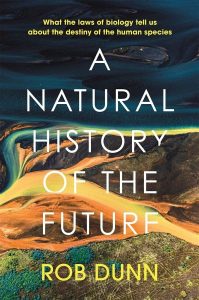
By Rob Dunn.
Dunn reveals the surprising complexities of the natural world and the interconnectedness of life itself. Along the way, he offers plenty of simple lessons in how we can, individually and collectively, through environmental policy, make the lifestyle changes necessary to ensure our own species’ survival. At once hopeful and practical, A Natural History of the Future offers a vision of our future in which humans and the natural world coexist symbiotically






